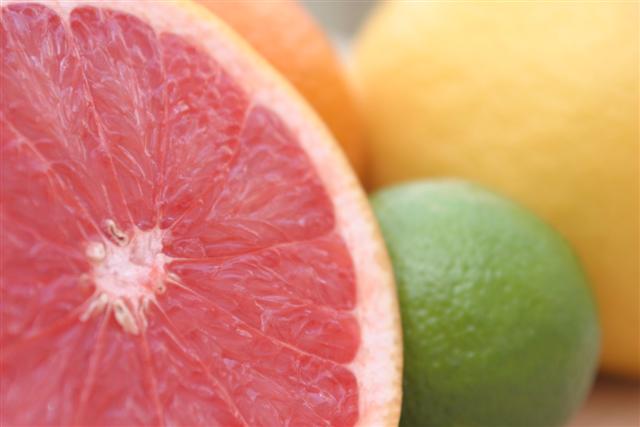- Home
- About Us

Citrus forms an important part of our product range
Read moreAbout Us
- How We Work

We have own roses under cultivation in Bulgaria
Read moreHow We Work
- News
- Products
- Services

We ship to more than 50 countries worldwide
Read moreServices
- Contact Us
- Home
- Products
Products
We are committed to providing only the highest quality of flavour and fragrance ingredients on demand to our customers worldwide. Our diverse product list offers a selection of over 250 natural and synthetic aroma chemicals, coolants, essential oils and extracts. Even if you cannot find a specific product you are looking for, do contact us as we may still be able to help.
Filter products by:
Clear allKeyword or product code
alpha-phellandrene dihydro-para-cymene; para-mentha-1,5-diene
A cyclic monoterpene with the molecular formula C10H16, it is found in nature and has a citrus, herbal, woody, peppery-like odour.
EU Natural | DMA Code: 800289 | CAS Number: 99-83-2 | FEMA Number: 2856
alpha-terpineol α-Terpineol, alpha terpineol, 3-cyclohexene-1-methanol, alpha, alpha, 4-trimethyl-3-cyclohexene-1-methanol
An alcohol with the molecular formula C10H18O, it is found in nature and has a lilac, citrus, woody, floral, pine-like odour.
EU Natural | DMA Code: 800984 | CAS Number: 98-55-5 | FEMA Number: 3045
Bergamot Oil Citrus aurantium L. subsp. Bergamia
Like many citrus oils, bergamot oil is produced by cold expression from the peel of the fruit. Its name comes from the Italian town of Bergamo where it was first sold.
EU Natural | DMA Code: 800306 | CAS Number: 89957-91-5 | FEMA Number: 2153
citral 3,7-dimethyl-2,6-octadienal
An aldehyde with the molecular formula C10H16O, it is found in nature and has a sharp, lemon-like odour.
Synthetic | DMA Code: 800031 | CAS Number: 5392-40-5 | FEMA Number: 2303
citral 95% 3,7-dimethyl-2,6-octadienal
An aldehyde with the molecular formula C10H16O, it is found in nature and has a sharp, lemon-like odour.
EU Natural | DMA Code: 800242 | CAS Number: 5392-40-5 | FEMA Number: 2303
citral 96% 3,7-dimethyl-2,6-octadienal
An aldehyde with the molecular formula C10H16O, it is found in nature and has a sharp, lemon-like odour.
EU Natural | DMA Code: 800726 | CAS Number: 5392-40-5 | FEMA Number: 2303
citronellol 3,7-Dimethyloct-6-en-1-ol
An acyclic monoterpenoid with the molecular formula C10H20O, it is found in nature and has a floral, waxy, rose bud, citrus-like odour.
Synthetic | DMA Code: 800033 | CAS Number: 106-22-9 | FEMA Number: 2309
Citronellol AJ 6-octen-1-ol, 3, 7-dimethyl
Citronellol AJ is a premium quality citronellol, organoleptically controlled for consistent odour quality. Offering a fresh, floral, rose note it can be used extensively in perfumes, not only for its rose character but as a fresh floral component. This product meets Food Chemicals Codex (FCC) specifications.
Synthetic | DMA Code: 800933 | CAS Number: 106-22-9 | FEMA Number: 2309
Citronellol Prime 6-octen-1-ol, 3, 7-dimethyl
Citronellol Prime is a soap grade citronellol that provides a high organoleptic consistency at low cost.
Synthetic | DMA Code: 800934 | CAS Number: 106-22-9 | FEMA Number: 2309
Coriander Leaf Oil Coriandrum sativum L., cilantro leaf oil
The oil from the leaf is more delicate, more expensive and less often requested than the seed oil. The leaf oil contains a higher decanal level.
EU Natural | DMA Code: 800317 | CAS Number: 84775-50-8 | FEMA Number: 2334
Coriander Seed Oil Coriandrum sativum L.
The oil is distilled from crushed ripe coriander seeds. Mainly grown in Russia and Ukraine, its demand on the spice market is an important factor that dictates the price movement of the essential oil, second only to the potentially drastic effects of the weather on the crop size.
EU Natural | DMA Code: 800318 | CAS Number: 84775-50-8 | FEMA Number: 2334
decanoic acid capric acid
A saturated fatty acid with the molecular formula C10H20O2, it is found in nature and has a fatty, sour, rancid-like odour.
Synthetic | DMA Code: 800047 | CAS Number: 334-48-5 | FEMA Number: 2364
Dihydromyrcenol 7-octen-2-ol, 2,6-dimethyl-
Dihydromyrcenol imparts a powerful, fresh lime-like, citrusy-floral and sweet odour with little or no terpenic undertones. It is used predominantly in soap fragrances and as a powerful supporting note in citrus and lime-type perfumes.
Synthetic | DMA Code: 800937 | CAS Number: 18479-58-8 | FEMA Number: n/a
Ginger Oil Chinese Zingiber officinale Rosc.
In its powdered form, or as fresh roots, an oleoresin or an essential oil, ginger is a spice widely used in the cuisine of many countries. In addition to its culinary uses, ginger is also renowned as an aid for disgestion and as an aphrodisiac. Cultivated in tropical regions around the world, the essential oil, which is distilled from the ground root, exhibits marked organoleptic differences between the African, Indian and Chinese origins.
EU Natural | DMA Code: 800325 | CAS Number: 84696-15-1 | FEMA Number: 2522
Grapefruit Oil California Type Citrus paradisi Macf.
The essential oil is obtained by cold expression from the peel. Like many other citrus oils, its shelf life is short and the oil must be stored under the correct conditions to prevent oxidation. The market of grapefruit juice, and therefore the oil, is particularly susceptible to food trends, going in and out of fashion regularly, notwithstanding the variation in the crop sizes from one season to the other.
EU Natural | DMA Code: 800330 | CAS Number: 90045-43-5 | FEMA Number: 2530
Grapefruit Oil California Type 10-Fold Citrus paradisi Macf.
The high terpene content in citrus oils can limit their application in water-based food and beverage consumer products. Partial or full deterpenation of the oil results in improved solubility and varying odour profiles depending on both the method and extent to which it is carried out.
EU Natural | DMA Code: 800332 | CAS Number: 90045-43-5 | FEMA Number: 2530
Grapefruit Oil California Type 5-Fold Citrus paradisi Macf.
The high terpene content in citrus oils can limit their application in water based food and beverage consumer products. Partial or full deterpenation of the oil results in improved solubility and varying odour profiles depending on both the method and extent to which it is carried out.
EU Natural | DMA Code: 800331 | CAS Number: 90045-43-5 | FEMA Number: 2530
Grapefruit Oil Florida Type Citrus paradisi Macf.
The essential oil is obtained by cold expression from the peel. Like many other citrus oils, its shelf life is short and the oil must be stored under the correct conditions to prevent oxidation. The market of grapefruit juice and therefore the oil is particularly susceptible to food trends, going in and out of fashion regularly, notwithstanding the variation in the crop sizes from one season to the other.
EU Natural | DMA Code: 800336 | CAS Number: 90045-43-5 | FEMA Number: 2530
Grapefruit Oil Florida Type 10-Fold Citrus paradisi Macf.
The high terpene content in citrus oils can limit their application in water-based food and beverage consumer products. Partial or full deterpenation of the oil results in improved solubility and varying odour profiles depending on both the method and extent to which it is carried out.
EU Natural | DMA Code: 800335 | CAS Number: 90045-43-5 | FEMA Number: 2530
Grapefruit Oil Florida Type 5-Fold Citrus paradisi Macf.
The high terpene content in citrus oils can limit their application in water-based food and beverage consumer products. Partial or full deterpenation of the oil results in improved solubility and varying odour profiles depending on both the method and extent to which it is carried out.
EU Natural | DMA Code: 800334 | CAS Number: 90045-43-5 | FEMA Number: 2530
Email Sign up
You have been successfully signed up to the De Monchy newsletter
What you'll receive in every monthly De Monchy Newsletter
- A round up of the latest news from the flavour & fragrance industry.
- Insight into the effects of currency fluctuations, political unrest and severe weather on a range of flavour and fragrance raw materials.
- Our opinion on likely market movements including buy recommendations and suggestions of what to watch.

